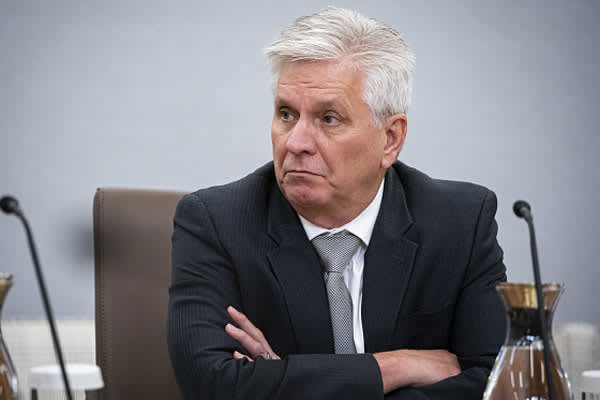BUENOS AIRES: President Javier Milei has announced Argentina’s first quarterly financial surplus since 2008 during a televised speech, promising his commitment to eliminating deficits wouldn’t waver throughout his term.
“The financial surplus is the cornerstone from which we are building a new era of prosperity in Argentina,” Milei said on Monday, flanked by his economic team at the presidential palace in Buenos Aires.
“We are making the impossible possible even with the majority of politics, unions, the media and most economic actors against us.”
The crisis-prone South American nation posted a quarterly financial surplus of 0.2% of gross domestic product to start the year, as well as a third consecutive monthly surplus in March, Milei said.
The libertarian economist pledged to stick with austerity because “inflation is robbery and financial deficit is the cause of inflation”.
Argentina bonds jumped as investors awaited Milei’s announcement, leading gains in emerging markets on Monday.
“Argentina continues to be a good trade,” Diego Ferro, founder of M2M Capital in New York, said by phone after the president’s speech.
But he cautioned that the surplus is still an intermediary step.
“What they accomplished was impressive, but based on very short-term measures,” Ferro said. “Unless it changes into structural changes, it will likely become another ‘I told you so story’ ending in tears.”
Argentina achieved its rare surplus by slashing three-quarters of transfers to provincial governments and halting nearly 90% of public works, Milei said.
The government also kept costs low by allowing nearly 300% annual inflation to erode real public spending on wages and pensions.
“Milei’s streak of financial surpluses is certainly good news, but the big question is how sustainable it is,” Adriana Dupita, deputy chief emerging markets economist with Bloomberg Economics, said.
“Much of the positive performance has come at the expense of high inflation eroding the purchasing power of public-sector salaries and pensions, and virtually halting public investment and transfers to provinces. This strategy cannot last long.” — Bloomberg

